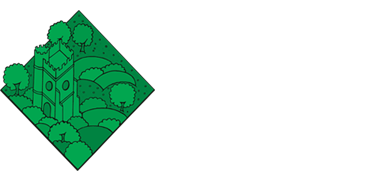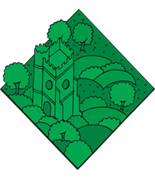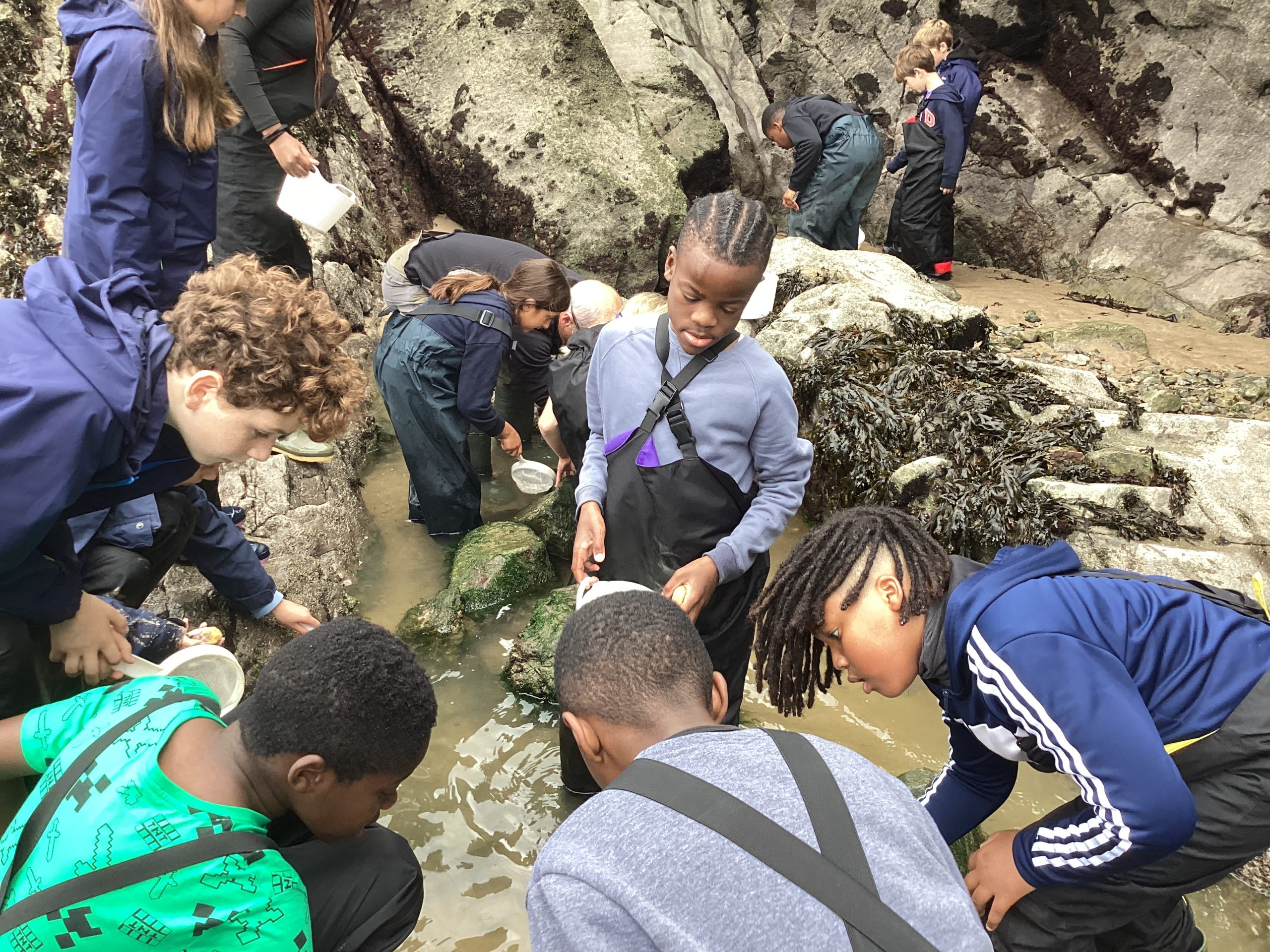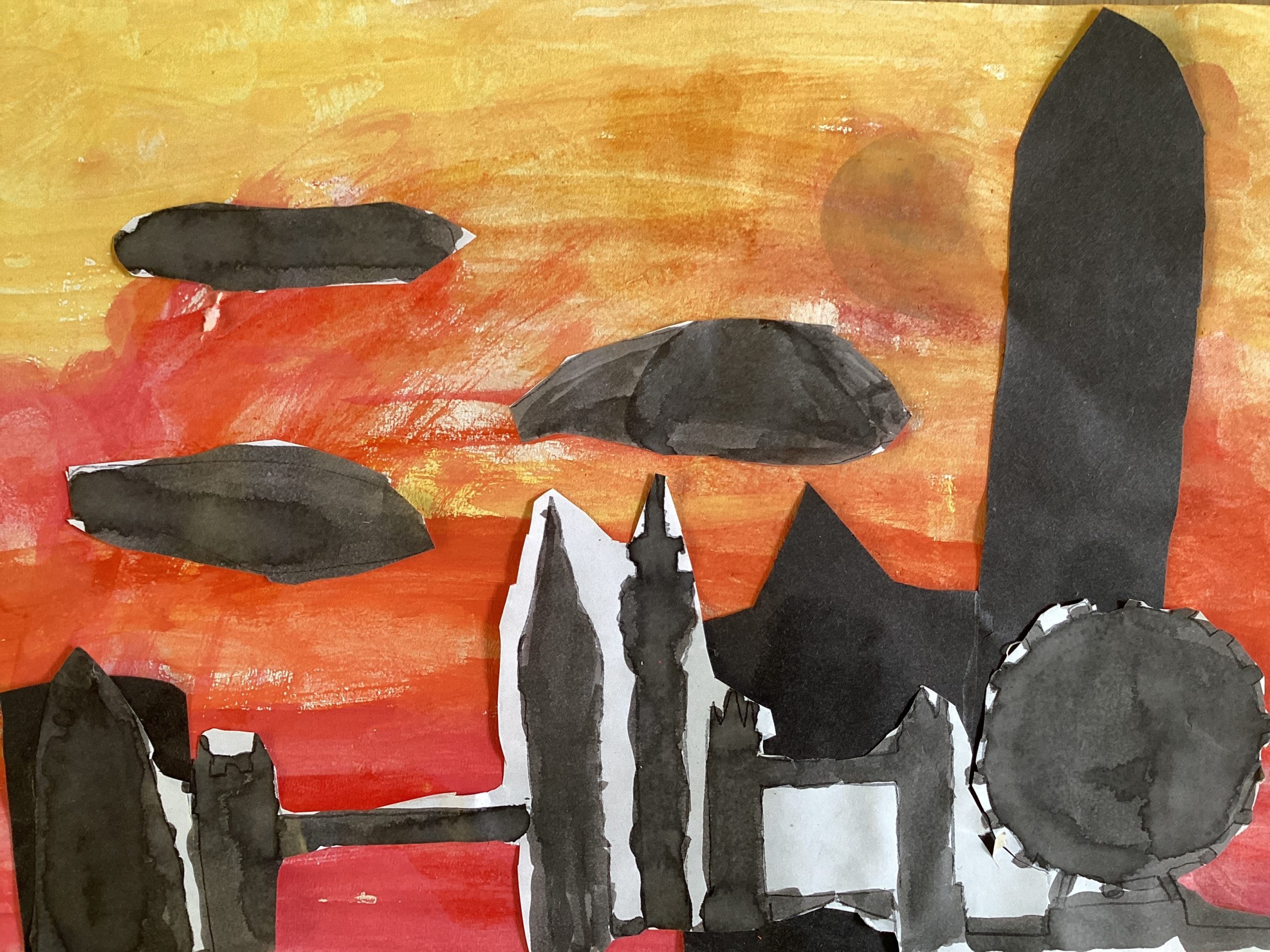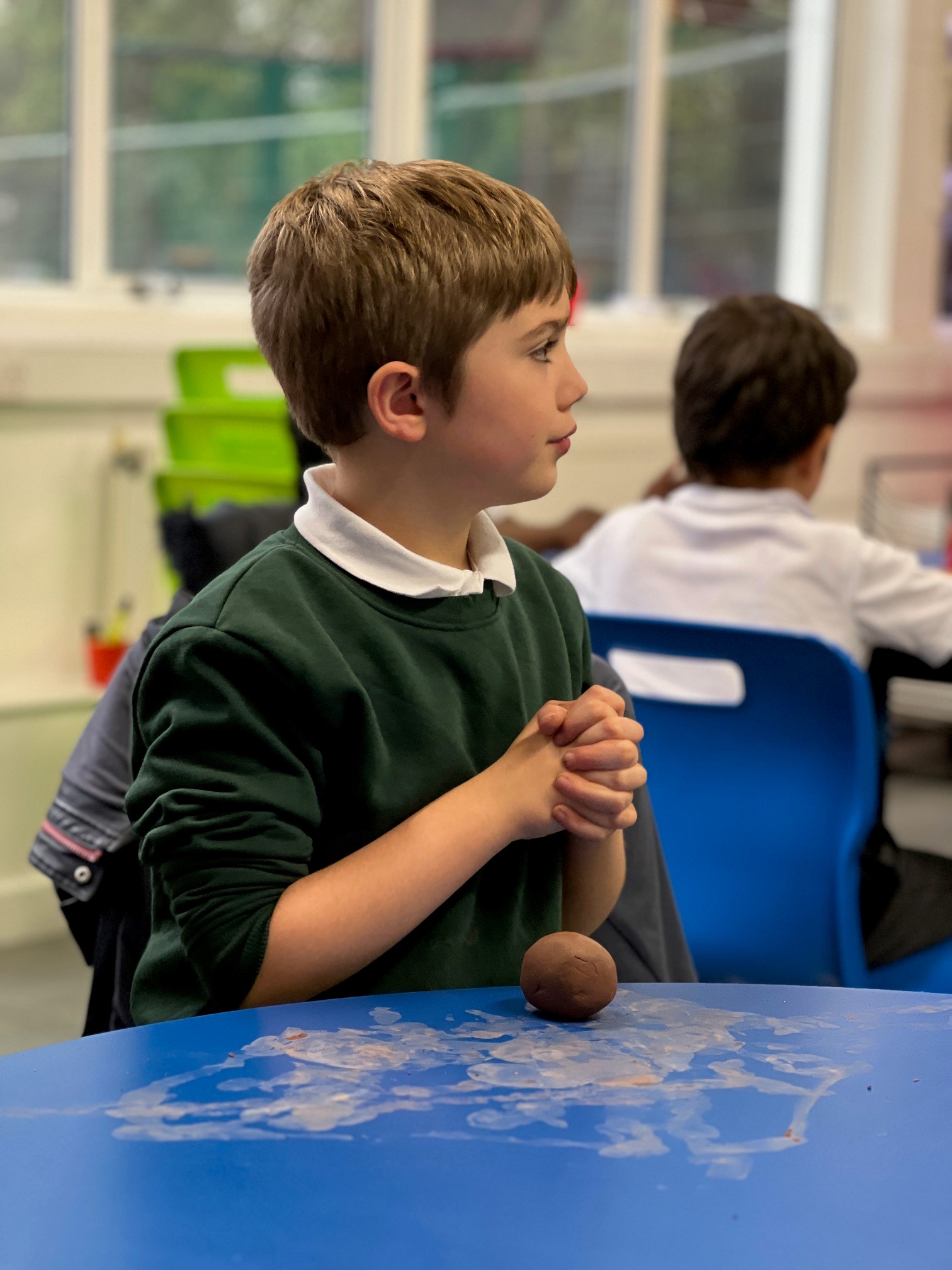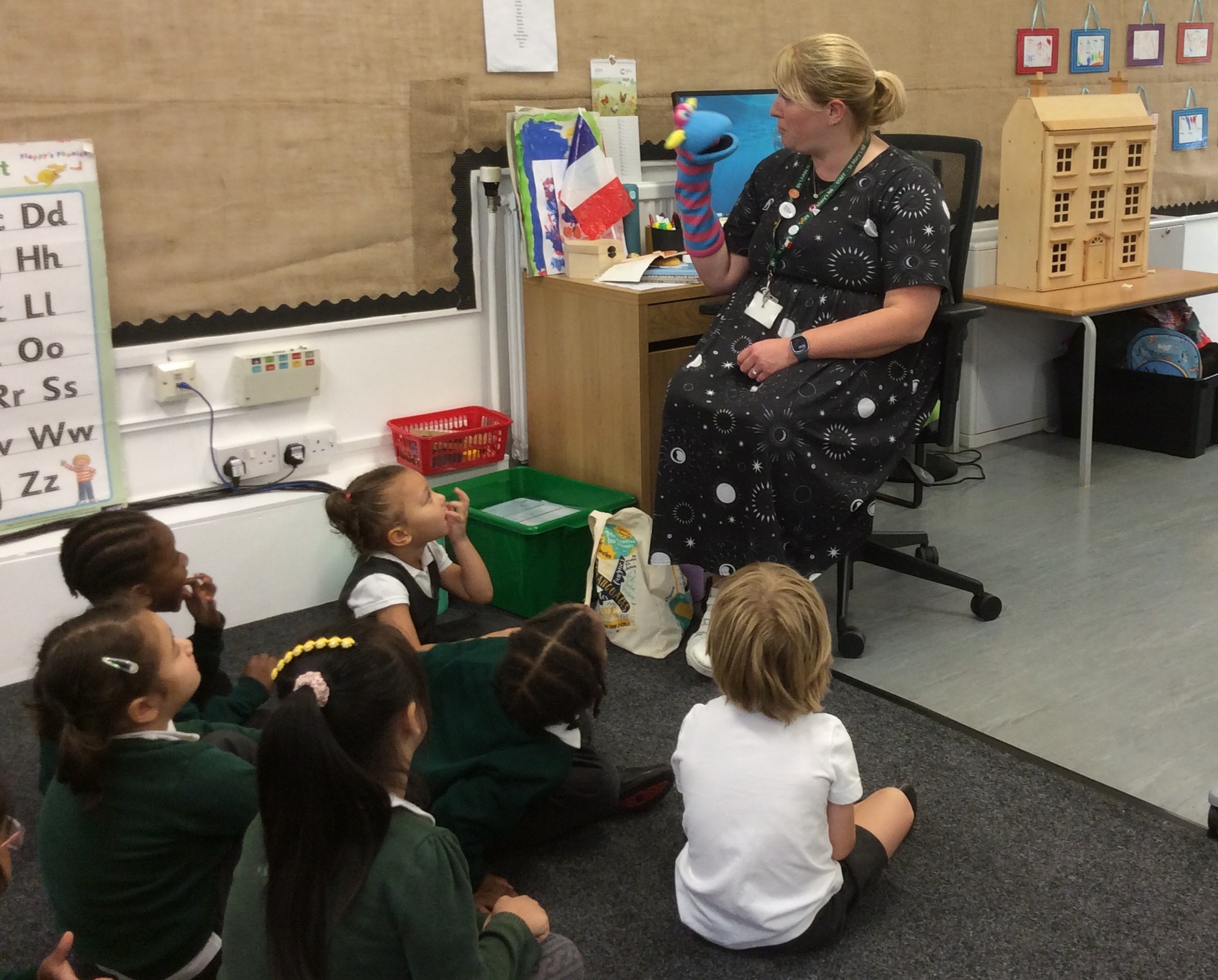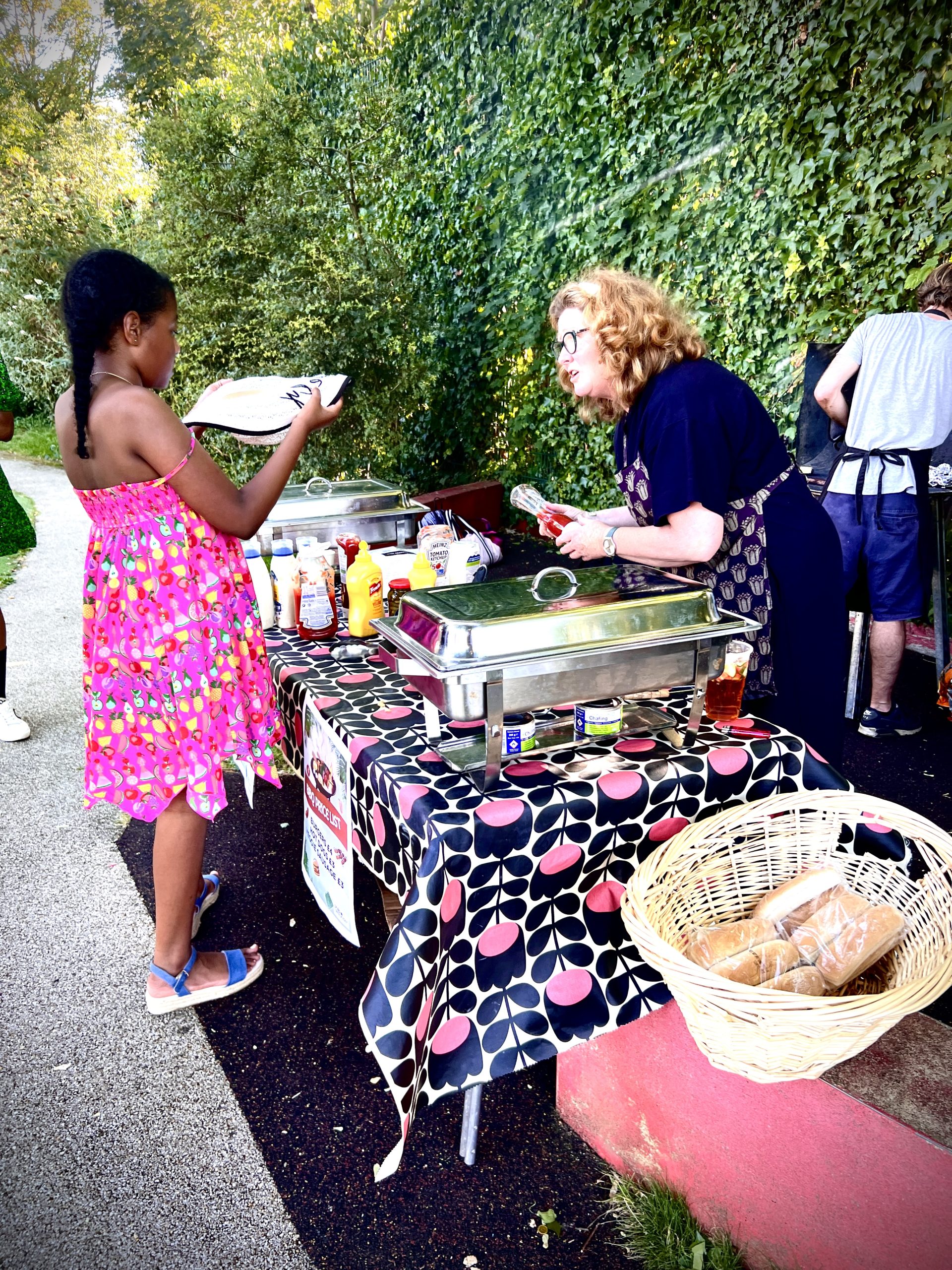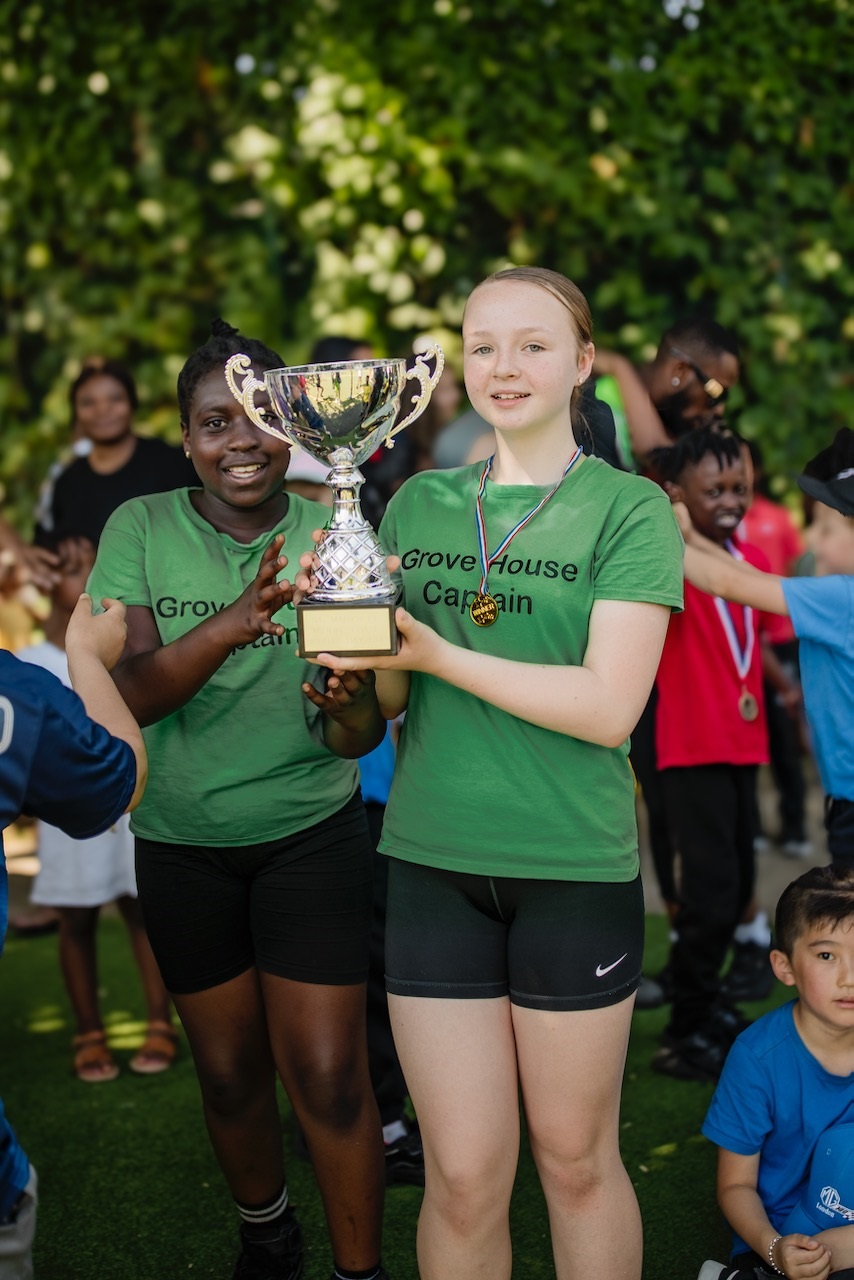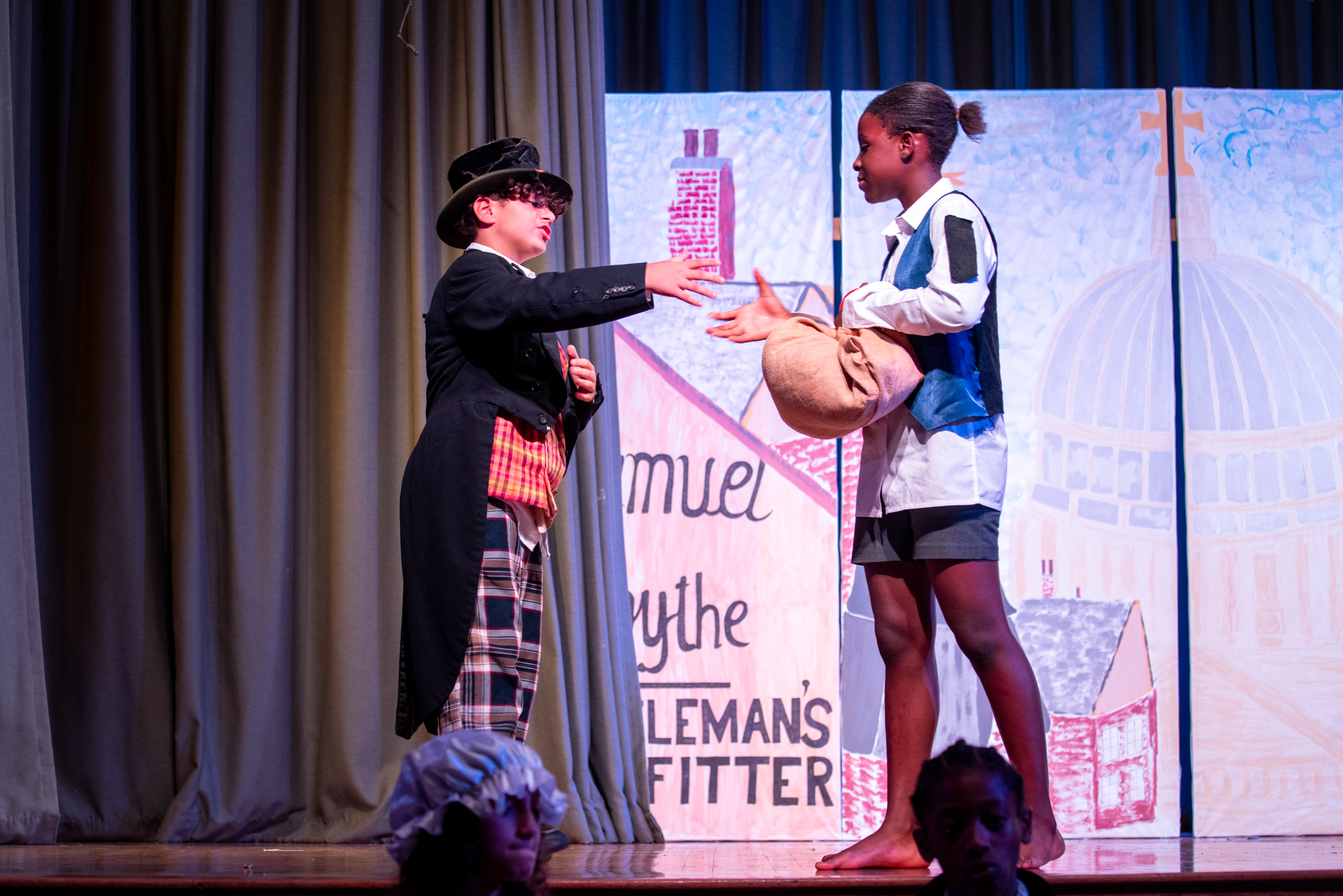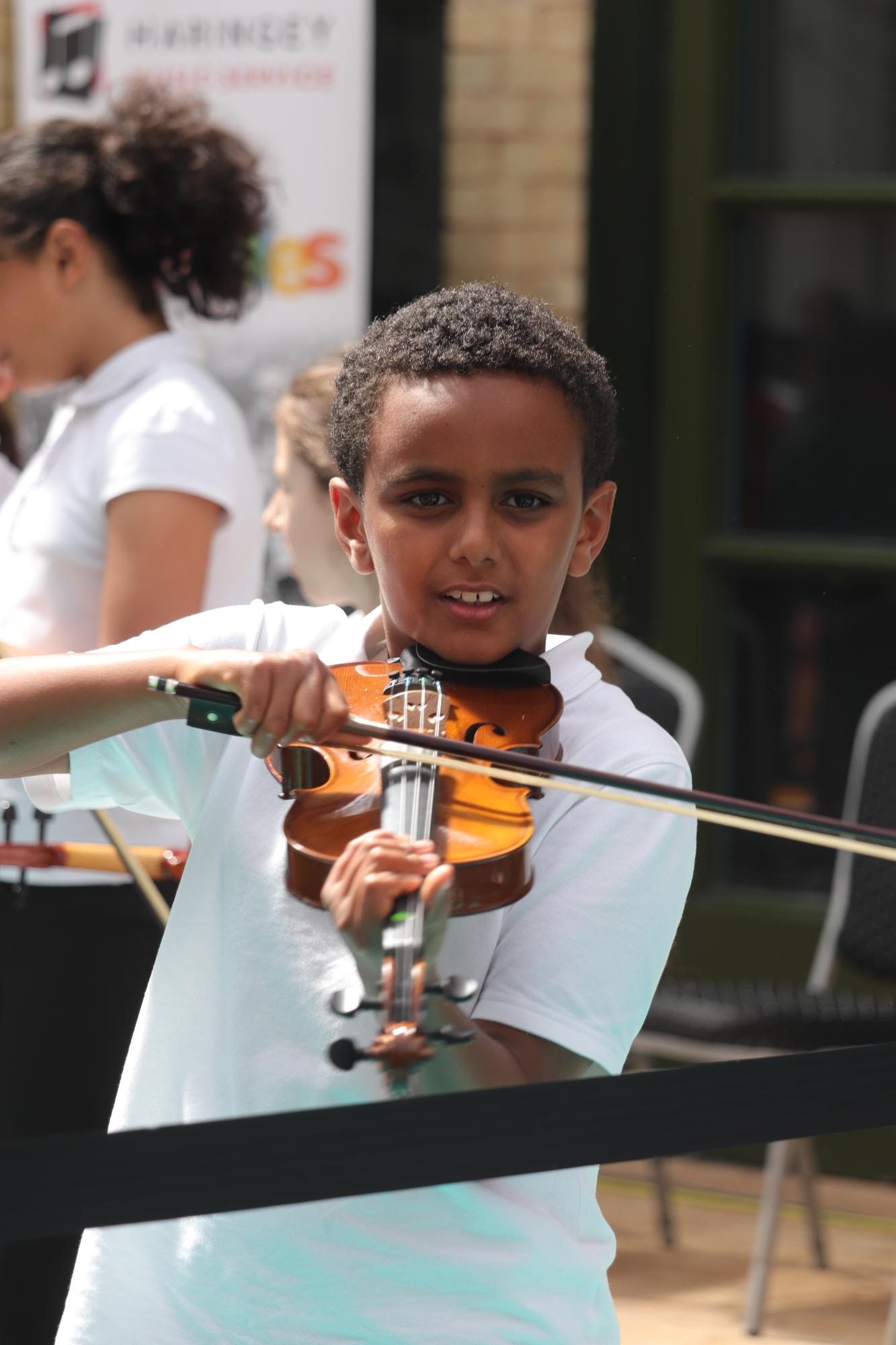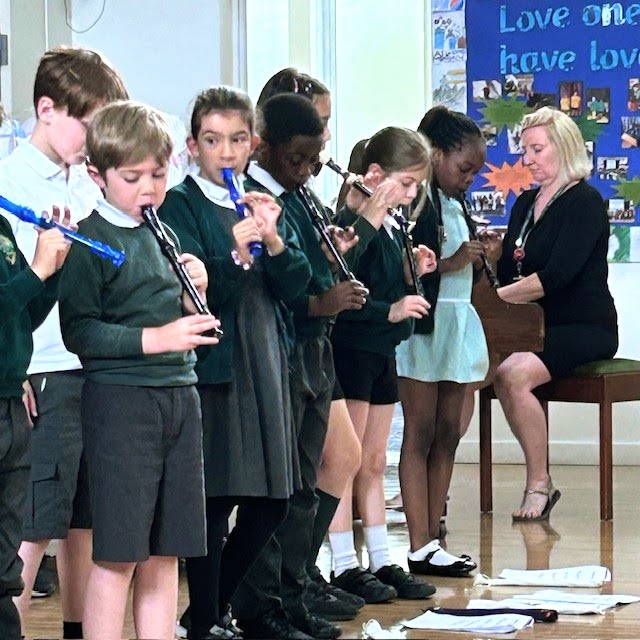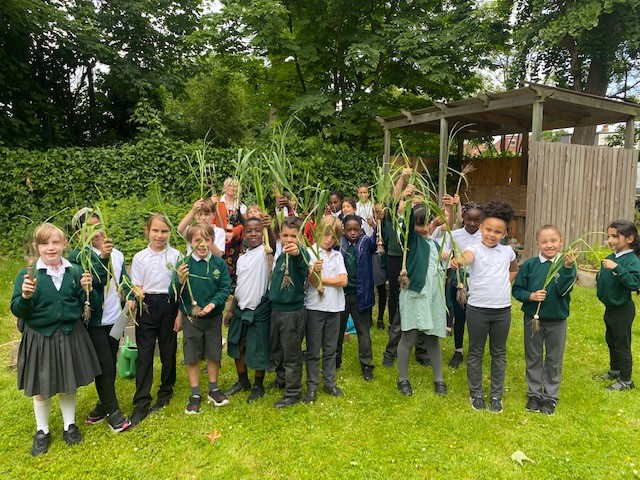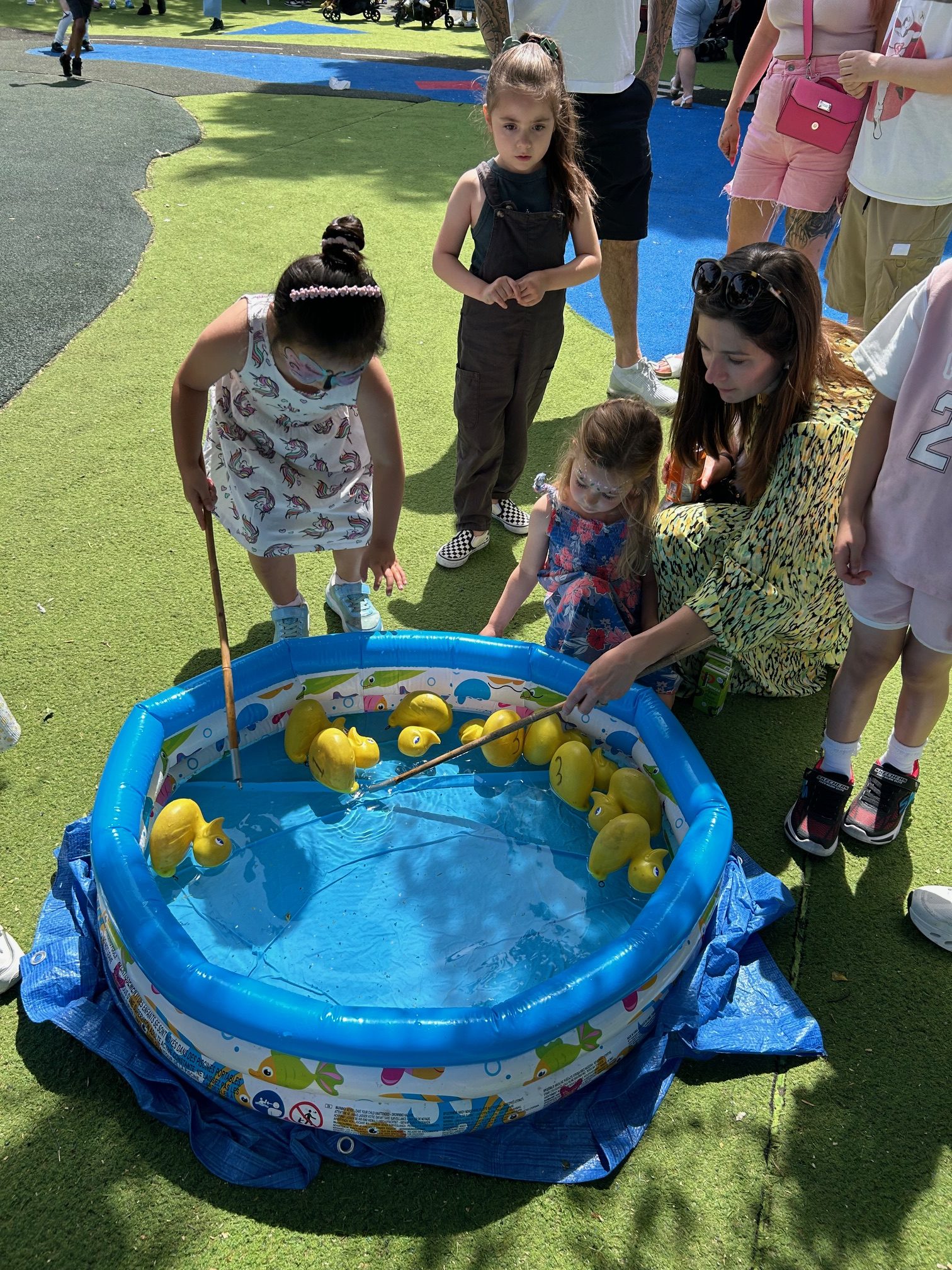French is taught to children from Year 3 to Year 6, by a specialist French teacher. Children in Year 2 are also taught French each week. The development of speaking and listening skills is key across the entire age range, and to this end, songs, games and role play feature highly. As children progress through Key Stage 2, the skills of reading and writing become increasingly important. Not only do they serve to help children memorise new language, but they also enable links to be made with grammar learned in the English curriculum. It is exciting to watch children discover that they can make use of their grammatical knowledge in another language.
Our specialist French teacher develops the children’s speaking and listening skills through songs, games and role play which helps them move on to reading and writing French and becoming ever confident linguistically.
Intent
We believe in the importance of modern foreign languages in developing children’s linguistic competence and this is seen as a lifelong skill. Learning a language opens up avenues of communication and exploration as well as promotes, encourages and instils a broader cultural understanding and respect.
- To develop in children an enthusiastic, positive and respectful attitude to other languages and language learning
- For children to develop language skills and language learning skills
- To raise awareness of aspects of children’s own language and make comparisons with the foreign language, thereby enriching their understanding of both
- For children to become increasingly familiar with the sounds and written form of a modern foreign language
- For children to enjoy success and develop endurance in learning a new language
- For children to use their knowledge with growing confidence and competence to understand what they hear and read, and to express themselves in speech and in writing as well as ask questions
- To increase cultural understanding by learning about different countries and their people, and working with written materials from those countries and communities
- For children to form a sound basis for further language learning at Key Stage 3 and beyond.
Implementation
Lesson plans follow a combination of the lead teacher’s own planning and the Language Angels scheme for French (annual subscription) and are designed to meet the attainment targets of the KS2 Languages Programme of Study.
Children:
- learn in a non-threatening environment which builds upon positive achievement
- experience a range of activities, including songs, rhymes and games, which provide a stimulating and varied approach to language learning
- are given opportunities to listen to the teacher, to songs and rhymes, to each other and to native speakers
- apply their learning by reproducing sounds themselves and creating phrases and sentences
- develop phonic knowledge about the language
- begin to recognise and read words that they have already encountered in the development of their oracy skills
- write simple words and phrases using a model and, with increased competence, write more complex sentences on a range of topics, some from memory
- develop the ability to recognise rules or patterns in a new language and relate it to their existing understanding of their own language(s)
- gain an understanding of another culture and learn to look at things from another person’s perspective.
- show an awareness of and respect for the similarities and differences between people and appreciate the diversity of languages spoken within the school
- use their knowledge about the way language works and apply their knowledge when learning a new language
- become aware of how they learn and be able to plan to use specific strategies for particular tasks.
The cultural element of language learning is incorporated into lessons to bring the language alive and we look at the French-speaking world, not only France. For more than twelve years, St Mary’s has had a history of promoting international travel in the context of language learning. Each year, Y5 pupils are given the opportunity to interact with native speakers on a day trip to Paris. The day trip also provides an opportunity for sightseeing in this beautiful city.
. Food plays an important role in cultural and linguistic learning and we hold very popular French cafés on both Church Lane and Rectory Gardens sites, in addition to food tasting in lessons.
French film is invaluable in conveying aspects of French culture as well as showcasing language in a ‘real’ context. Our pupils have watched and studied French language films at the local ArtHouse cinema, the Ciné Lumière at the Institut Français and at the British Film Institute.
Assessment
Children’s progress is assessed with reference to the attainment targets of the Programme of Study for Languages.
Assessment is based on:
- class observations of listening and speaking activities
- written evidence in books and teacher feedback
- Language Angels’ assessments in speaking/listening/reading/writing for certain units, where appropriate
Also, parents receive an annual written report about their child’s progress in French.
Our curriculum maps are designed with both coverage and progression built in. This makes our curriculum dynamic, ever-changing and responsive to the children’s needs and learning styles.
